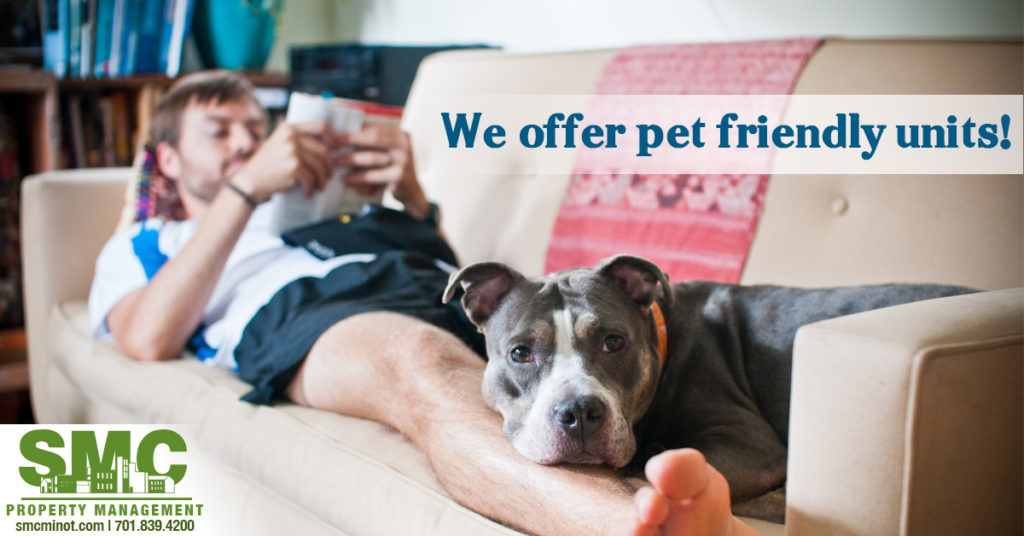by Kari Lloyd
For many people, an apartment doesn’t feel quite right unless there’s a pet to come home to. According to the American Society for the Prevention of Cruelty to Animals, it’s estimated that there are 70-80 million dogs and 74-96 million cats currently living with pet parents across the United States. Given that, many apartment communities have pet-friendly policies, and some even boast dog parks or other perks for pets.
Despite this, there may be certain restrictions or financial implications when it comes to renting an apartment with a pet. Here’s our top list of questions you should always ask before signing the lease for your new apartment if you’re renting with a pet:
1) Are there any breed or size restrictions?
Though it may seem unfair, particularly to dog lovers, many pet friendly apartment communities have a list of “banned breeds” when it comes to man’s best friend. Typically breeds that are deemed “aggressive” or “dangerous,” such as Pit Bulls, Dobermans or Rottweilers, often make the list. There may also be size restrictions for both dogs and cats based on weight. Ask the leasing agent for a specific list of any restricted breeds and be sure to voice any concerns at the beginning.
2) Do you restrict any additional types of pets?
While you may be excited to install a 6×10 foot boa constrictor enclosure in your new apartment, your leasing office may not. Some communities have policies on exotic animals, such as snakes, birds, lizards or even some rodents. Additionally, some residential properties have restrictions on larger fish tanks for fear of floor warp or water damage. Read the fine print and if there are restrictions, ask for a full list.
3) Is there an additional deposit or monthly fee involved in having a pet in the apartment?
Like it or not, pets can cause damage to a rental apartment. From your cat insisting on using the blinds as his own personal scratching post to unsightly pet stains on the carpets, leases are more frequently asking for an additional “pet deposit.” Additionally, some communities also charge a monthly “pet rent” per animal in your apartment. Clarifying this before you sign the lease is essential, as it can add up on your monthly expenses. Also, ask how the pet deposit is handled and if any or all of it will be refunded should there be minimal damage.
4) Are there any additional cleaning fees that will be charged upon move out?
If you’re already being asked to pay a pet deposit, chances are that will cover any cleaning fees your community will want to take on after your departure. However, some rental properties instead add clauses that indicate additional carpet cleaning, allergen cleaning or deodorizing fees that will be charged before you move out, or added to your last bill. Find out what cleaning procedures they will be engaging and what, if any, additional costs will be levied to you.
5) Are there any additional pet policies that I should be aware of?
In order to ensure the comfort and safety of everyone on the rental property, community managers often have a list of rules for pet owners to follow. Breaking these can occasionally result in fines, or in extreme cases, termination of your lease. Some typical rules might concern:
- Barking dogs
- Outdoor animal dropping fines
- Leash and dog park facility policies
- Outdoor cats
- Collar, ID, vaccination and spay/neutering requirements
Remember, when in doubt, it’s better to ask before you sign the lease than have the disappointment of being told that your particular pet does not meet the community’s requirements or being forced to make the difficult decision between your new apartment and your beloved companion. Read your lease thoroughly. If your community does not currently have a pet policy in place, ensure that they are aware of your pets and have something written into the lease.


